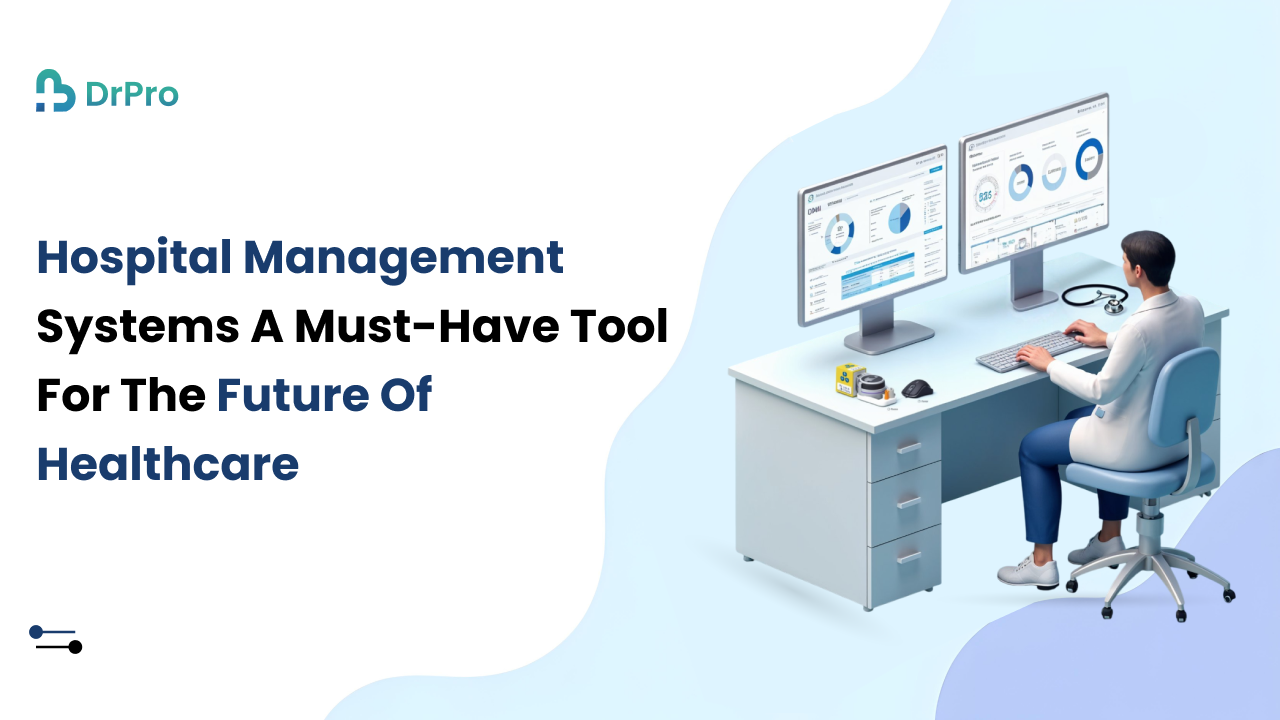The management of a hospital is not so easy. The hospital deals with huge data every day, from patient record keeping to appointment scheduling to billing. A hospital management system (HMS) is an electronic tool used in hospitals to organize its various services, save time, improve patient care, etc.
Now let’s see what a Hospital Management System is, its important features, and why every hospital needs it.
What is a Hospital Management System?
Hospital Management System (HMS) is a kind of software solution for the management of the daily activities in hospitals such as:
- Patient registration and record-keeping
- Appointment scheduling with doctors and visits
- Invoicing and payments
- Medicine and inventory tracking
- Staff and doctor coordination
With the utilization of HMS, hospitals function smoothly in operations, with less paperwork and improved patient care.
Key Features of a Hospital Management System
1. Patient information management
- Patient detail and their medical history are compiled in one place.
- Easy access to past treatment.
- Minimized paperwork along with manual errors.
2. Appointment Scheduling
- Online or offline patient bookings for appointments.
- Automated reminders, causing fewer no-shows.
- Easy scheduling by doctors.
3. Electronic Health Records (EHR)
- Digital storage of patient health information.
- Progress tracking by a physician concerning treatment.
- Communicates well between departments.
4. Billing and Payment
- Automated billing and invoice generation.
- Automated insurance claims.
- Minimizes financial errors.
5. Pharmacy and Inventory Management
- Medicine stock maintenance.
- Less shortage and wastage.
- The different smooth running of supply medical billing software products.
6. Staff Management and Doctor Management
- Staffing assigned duties by the hospital.
- Doctor shifts and schedules can be tracked.
- Better coordination of healthcare teams is established.
7. Reports and Analysis
- Created report cards on hospital performance.
- More sound decision-making in the management of the hospital.
- Improvises improved patient care and operational efficiency.
Why Every Hospital Needs a Hospital Management System
1. Better Patient Care
- Patient’s history can be easily accessed by doctors.
- Minimize errors associated with patient treatment and medication prescriptions.
- Harmonizes communication within hospital departments.
2. Time and Cost Saving
- Decreased manual work and paperwork.
- Reduced operational costs.
- Speeds up processing in the hospital and improves efficiency.
3. Secure Data Storage
- Patient data is secure from unauthorized access.
- Reduced risks of data loss.
- Adheres to healthcare security regulations.
4. Improved Resource Efficiency
- Tracks consumable and capital assets.
- Zero wastage of medical resources.
- Assures the hospital’s smooth running.
5. Effortless Communication
- Comes in contact with doctors as well as nursing and other hospital staff.
- Thus, constructs the delays in treating patients due to the coordination and communication of the internal teams.
- Will also help in better decision-making.
The Future of Hospital Management Systems
The strategic movement of this approach is going toward technological advancement into most of the arms in hospitals. Hospital Management System leads that pace.
- Cloud-based, on the other hand, ensures that data can be accessed anytime, anywhere.
- Hastens the process by which AI analytics can deliver prognoses faster than before to physician diagnoses of diseases.
- Telemedicine integration infuses physician online consultation for remote patient operators.
- Automation makes errors in a hospital workflow.
Today’s investment in HMS software by hospitals will best prepare them for the future of health care.
Conclusion
No longer an option, a Hospital Management System is a necessity. The hospital manages patient records and the entire hospital by minimizing manual work and improving service.
With the adoption of HMS, better patient care is provided, efficiency is increased, and costs are reduced. If your hospital still has legacy systems, then it’s time to think seriously about moving toward the new Hospital Management System.
Frequently Asked Questions
Q1. What is a Hospital Management System?
It is a software tool used to help hospitals manage all records, appointments, billing, and running daily activity.
Q2. How does HMS improve patient care?
There is quick access to records, minimizes errors in treatments, and increases coordination in the hospital.
Q3. Can it use an HMS in small hospitals?
Yes, an HMS can customize it for hospitals from small ones to the largest.
Q4. Is an HMS secure?
Yes, modern HMS are following strict security protocols for securing patient data.
Q5. What is the future for the Hospital Management Systems?
AI with cloud storage and telemedicine will be the future of HMS-enhanced healthcare services.
Now it’s time to go digital in better health management within hospitals; make it healthier for all involved: patients, doctors, and hospital staff.


